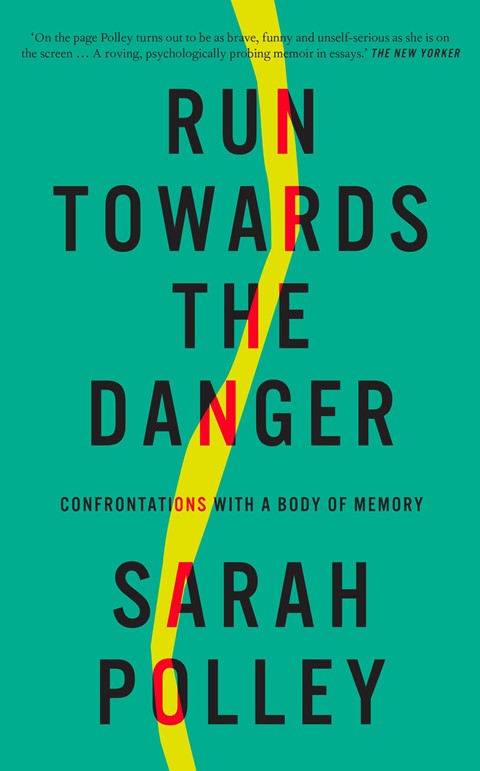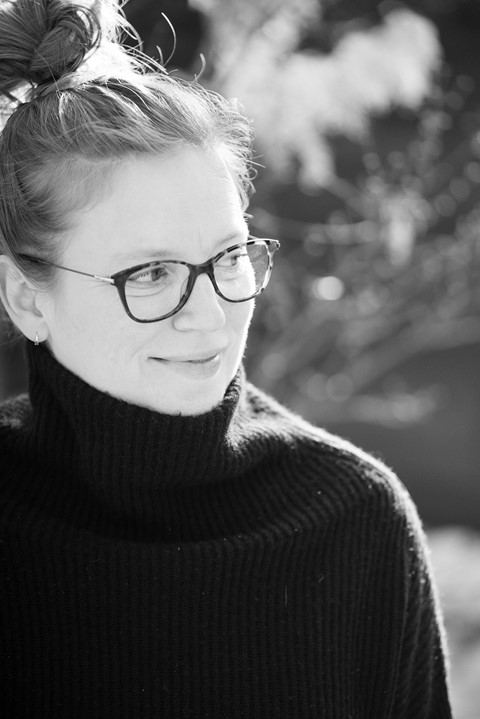The Canadian actor and director’s new book of essays grapples with assault, being a child actor, and parenthood in the shadow of maternal loss
“I feel like it’s the most amazing, privileged experience I’ve ever had,” says Sarah Polley on the positive and often personal feedback she has received from readers since publishing her collection of essays, Run Towards the Danger. “And also this deep sadness, that not everyone gets to have this experience.”
It’s a statement that feels typical of Polley’s generosity as an artist. Across six unflinching, beautifully written long-form pieces, the Canadian director variously reflects on her childhood working in front of the camera; grapples with the question of coming forward with a past assault; and embarks on parenthood in the shadow of maternal loss. Used to training her camera on difficult subjects and plumbing past pain to elucidate the present – whether in Away from Her, the profoundly empathic, Oscar-nominated study of Alzheimer’s she directed in her twenties, or Stories We Tell, a complexly layered docu-portrait of her own family – Polley takes no shortcuts.
Several of the essays were written over a 20-year period and read like a collaboration with past selves. “The Alice Through The Looking Glass essay was one that I started it in my early twenties, and even the first few pages are pretty much intact from then,” she says of the first piece in the collection, which interweaves memories of playing Alice in a theatre production as a teen with musings on the queasy genesis of Lewis Carroll’s beloved book. Though there are just six essays in the book, as a constellation of critical moments in Polley’s life, they exude a sense of time lived. “I’m not actually interested in being the most prolific filmmaker or writer in the world,” she says. “I’d really like to live life and take time and feel like I had something to say.”

Having worked as a child actor on punishing sets, including for Terry Gilliam’s famously beleaguered The Adventures of Baron Munchausen, and losing her mother to cancer at a young age, Polley has an abundance of early experience to draw from. The subject of childhood, and its loss, is a thread that runs through the book. “I think a lot of my recollecting comes through interactions with my children,” she says. “Those sticky moments where something’s coming up, or you’re behaving in a way you don’t fully understand, or having a reactive response to something that you don’t really understand – I think I’ve made it a part of my mission to try to unpack those moments when they’re happening or after they’ve happened and wonder, what is that bringing to the surface?”
Instinctively drawn to the combination of myth and memory that underpins the way we make meaning in our lives, the personal essay format held particular appeal. “I have an endless amount of tolerance for imperfect writing if someone’s actually willing to tell me something about their experience on this earth,” Polley says. “I feel like there’s so much to be gleaned from someone trying to mine their own experiences.” She had been working on a “sprawling” novel when she was given some sage advice from her friend Margaret Atwood: “She said, well, you know you can write an essay. So if you have a book of essays, start with that; with what you know you can do.” Miriam Toews, whose book – Women Talking – Polley has recently adapted into a film, encouraged her to send Run Towards the Danger out when she wasn’t sure if it was quite ready yet. In many ways, that advice mirrored the overarching theme of the book.
“I’m not actually interested in being the most prolific filmmaker or writer in the world” – Sarah Polley
“Run Towards the Danger ended up being so important to me as a way of approaching the world and moving towards the things I was afraid of,” Polley explains of the title, which was inspired by the words of a doctor who treated her for life-altering concussion. “I was very, very afraid to write some of these essays, and even more afraid to share some of them. So the whole project of the book started to feel like this jumping off of a cliff and not knowing how or where I was going to land and just deciding to do it anyway.”
When we speak, early on a Tuesday Toronto-time, Polley is days from closing post-production on Women Talking, her first feature-length film in ten years. (Though she has hardly been quiet: since making Stories We Tell, she wrote the screenplay for the Netflix adaptation of Atwood’s Alias Grace, co-directed the brilliant short comedy series Hey Lady!, had three children and recovered from a head injury, all while working on Run Towards the Danger.) Still, Women Talking – which stars Frances McDormand, Rooney Mara and Jessie Buckley as Mennonite women confronting sexual abuse in their colony – will be an important touchstone in her long and varied career. But like the author Anne Michaels – a particular favourite of Polley’s – or Terrence Malick in his early period, she is happy to take her time before embarking on her next project. “It’s kind of an amazing thing to not know what’s next,” she says. “And hopefully take a while before deciding.”
Run Towards the Danger by Sarah Polley is published by September Publishing and is out now.
